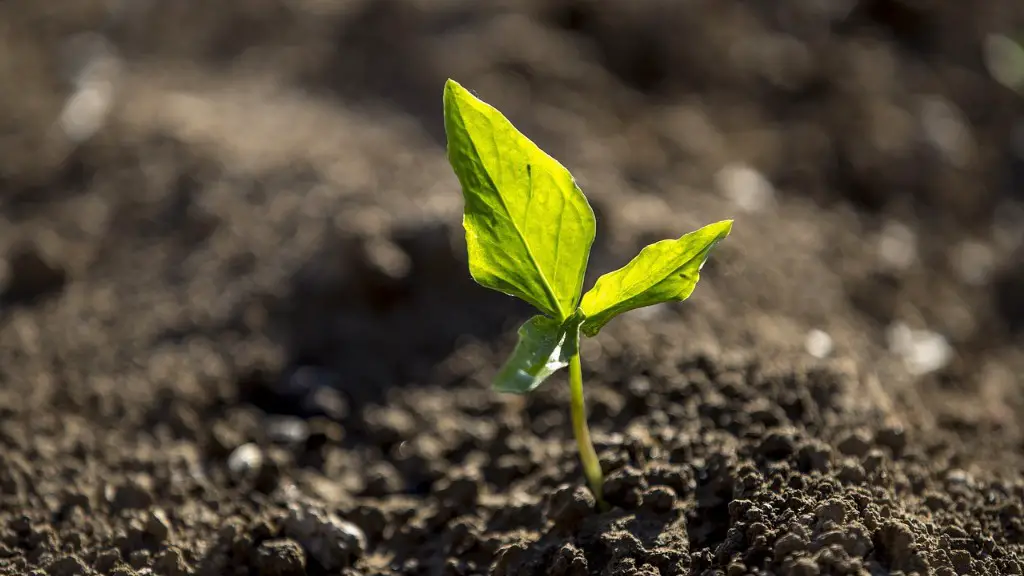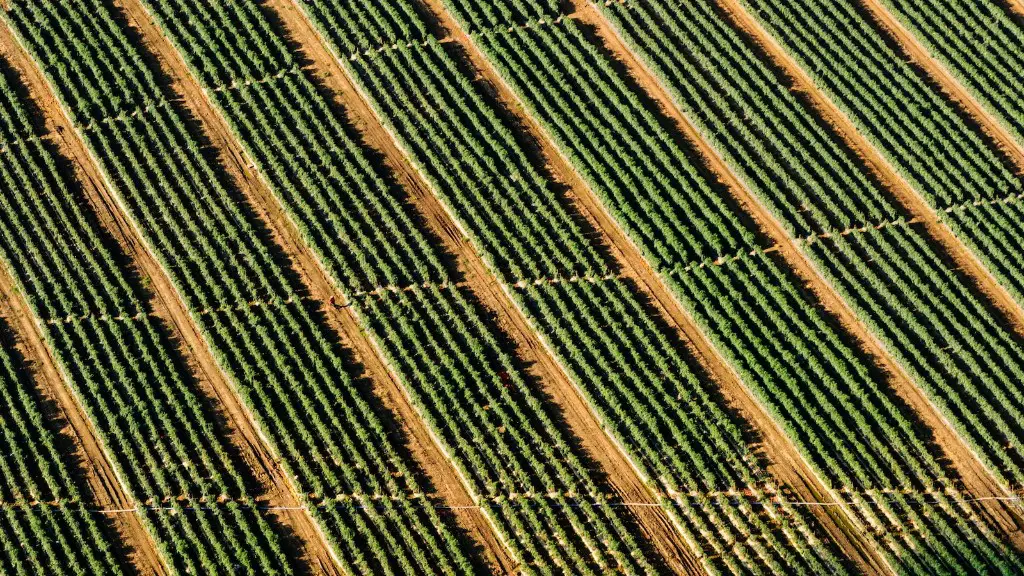Climate change is having drastic effects on global agriculture, threatening food security and livelihoods worldwide. As temperatures continue to rise, weather patterns become increasingly unpredictable and extreme weather conditions become more frequent and intense. The effects of these changes are increasingly being felt on farms and agricultural production, resulting in increased losses on production and decreased levels of food security. Here are just a few of the major effects of climate change on agriculture.
Soil and Food Quality
Changing temperatures and unpredictable weather patterns directly affect soil health and crop yields. Warming soil temperatures can stunt plant growth and lead to lower yields, while extreme droughts can cause soil erosion and degradation. Furthermore, excessive heat can reduce nutritional content in food crops, resulting in lower quality and reduced value. Extreme weather events such as floods can also wash away nutrients, reducing soil quality.
Water Availability and Irrigation
Water availability is a major issue for agricultural production, especially in low-income countries. Changes in precipitation patterns increase the risk of water shortages, while droughts can reduce both crop yields and soil fertility. Warmer temperatures also affect evaporation rates and reduce the amount of water available for plants. Furthermore, increased floods can cause extensive damage to irrigation channels and can contaminate groundwater.
Pests, Diseases and Weeds
Changing temperatures can cause certain pests, diseases and weeds to expand their range, leading to greater damage to crops and livestock. Additionally, higher temperatures and extreme weather conditions are more conducive to the spread of certain plant diseases and pests, leading to reduced crop yields and lower profits. Furthermore, farmers may have to invest more in pest control and chemical inputs to protect their crops.
Livestock Production
The effects of climate change on livestock production are becoming increasingly evident. Higher temperatures can cause heat stress in animals, resulting in reduced milk production and an increased risk of mortality. Livestock may also be affected by changes in pasture and grazing lands, while floods may contaminate drinking water and cause food shortages.
Adaptations and Adjustments
In an effort to reduce the effects of climate change, farmers are increasingly adapting and adjusting their agricultural production practices. This includes the adoption of climate-smart farming techniques such as crop rotation, intercropping and conservation agriculture, as well as the use of improved varieties of seeds and livestock breeds. In addition, farmers may need to adjust their agricultural inputs, such as fertilizer and irrigation, in order to cope with changing climates.
Impact on Food Security
The effects of climate change on agriculture have wide-reaching implications for food security. Changing temperatures and weather patterns can lead to reduced crop yields, reduced food quality and increased losses due to pest, disease and weed infestations. In addition, floods and droughts may damage infrastructure and irrigation systems, leading to reduced access to food. As such, the effects of climate change on agriculture can have a major impact on global food security.
Increased Use of Chemical Inputs
To protect their crops and livestock from the harmful effects of climate change, farmers have turned to increased use of chemical inputs such as fertilizers, pesticides and herbicides. While these chemicals may protect crops from pests, diseases and weeds, they can also have detrimental effects on soil health, food quality and human health. Furthermore, increased use of chemical inputs may lead to increased costs for farmers and have a negative impact on the environment.
Implications for Rural Livelihoods
Climate change has had a major impact on rural livelihoods, particularly in developing countries. Changes in temperature and weather patterns can reduce crop yields and harm soil fertility, leading to reduced agricultural income and increased food insecurity. Additionally, extreme weather events such as floods and droughts can cause extensive damage to infrastructure and agricultural equipment, resulting in further losses of income. As rural livelihoods depend largely on agricultural production, these changes can have a major impact on communities in developing countries.
Impacts on Market Prices
Changes in climate affect agricultural production and crop yields, which in turn can have an impact on market prices. Higher temperatures and unpredictable weather can lead to lower crop yields, resulting in higher prices for food commodities. Additionally, extreme weather events such as droughts and floods can damage crops and reduce supply, again leading to higher prices. This can have a significant economic impact on consumers, especially in low-income countries.
Impact on Agricultural Infrastructure
Climate change can have a major impact on agricultural infrastructure such as irrigation systems and storage facilities. In some cases, floods and droughts may damage infrastructure and reduce access to food. Furthermore, increased temperatures can lead to more frequent and intense extreme weather events, further affecting infrastructure and agricultural production.
Effects on Human Health
The effects of climate change extend beyond agriculture and food security, and can also have a major impact on human health. Rising temperatures and extreme weather events such as floods and droughts can lead to water shortages and contamination, resulting in disease and illness. Additionally, increased chemical input use to protect crops can have negative effects on human health and contaminate water supplies.
Implications for the Global Economy
The economic impact of climate change on agriculture can be felt both locally and globally. Changes in agricultural production can result in reduced food supplies and higher market prices, negatively affecting both consumers and producers. Additionally, increased losses in production due to extreme weather events can have a major economic impact, especially in low-income countries.



